US ambassador: "I stand by what I said"
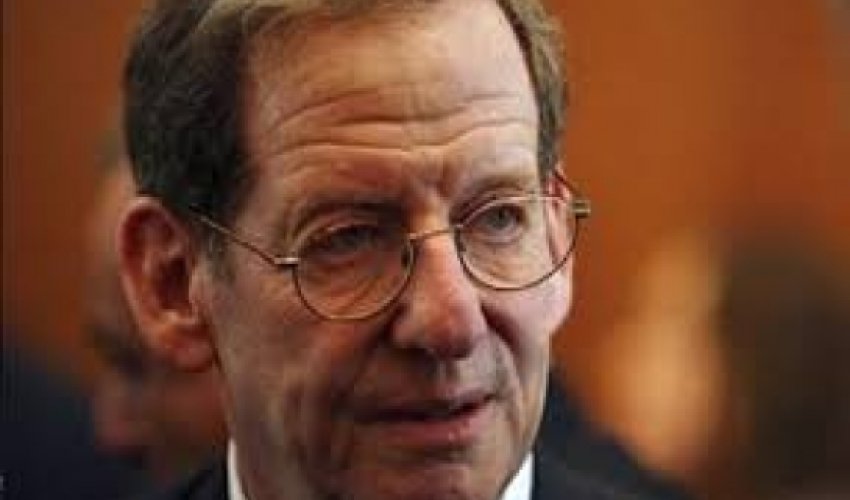
The US ambassador to Azerbaijan, Richard Morningstar, gave an interview to "Hesabat" program of ANS TV broadcast on Sunday. The text of the interview was posted on the embassy website.
Question: [Through Interpreter]. Mr. Ambassador, why are you interfering in the internal affairs of Azerbaijan?
Ambassador Morningstar: You must be referring to my recent interview which got a lot of attention. I do not believe that I was interfering in the internal affairs of Azerbaijan. Azerbaijan is a sovereign and independent country. Azerbaijan makes its own decisions. We have strongly supported Azerbaijan’s independence for the last 23 years. No outside actor, including us, can tell Azerbaijan what to do. Only the Azerbaijani government and the people of Azerbaijan can do that.
My intent with that interview was to state how I felt about many issues that are facing Azerbaijan today. I did so consistent with United States policy and I think I
did so in a balanced way. Many agreed, many disagreed with some of the things that I said. And I respect the right of every person to express their opinion.
If the result of the interview is a continuing good-faith discussion on these issues among government officials, among members of civil society, that alone would
make the interview worthwhile. I am a long-time friend of Azerbaijan. I think everybody knows that. I have been coming here on and off for the past 19 years. I have witnessed tremendous progress in this country in many areas over that period of time. I am certain that there will continue to be that kind of progress over the next 20 years.
I will add that some of the reactions to my interview, I think, were based on poor translations and misinterpretations in some media outlets—not ANS TV, of course— of what I had to say. I would urge anybody that is curious about that interview to read the complete transcript which is on our website.
Finally, I would like to make one clarification to make sure that what I said in that interview is clear. Some of those misinterpretations had me allegedly saying that
another Maidan-type situation would occur in Azerbaijan if the human rights situation did not improve. I did not say that. What I said was, quote, “If you take too hard a line and do not give enough breathing space to civil society, arguably, it is more likely that at some point there could be a real issue.”
I further said that it may not be today, but maybe five years from now, ten years from now, twenty years from now. I said that I think that is the risk if civil society is closed off too much, but I did not say there would be another Maidan. I have said similar things many times in the past. I would have said the same thing
even if there had been no Maidan Square. In other words, what I was saying was that for Azerbaijan to promote its future stability and prosperity, it needs to promote more space for its civil society to flourish.
Again, some may disagree—and everybody has a right to their opinion—but I do stand by what I said during that interview.
Question: [Through Interpreter]. You mean you stand behind your words that were not misinterpreted?
Ambassador Morningstar: I stand behind the words that I actually said during that interview, and that is why I encourage people to read the complete transcript. I think you will find that it was quite balanced.
Question: [Through Interpreter]. After this said interview, there were lots of talks about the balanced nature of the U.S. foreign policy. People started asking
questions like “Why is more attention paid to the Crimea issue and not to Karabakh? Why is there lots of talk about discussions about the application of harsh sanctions against Russia and not to Armenia which acted the same way when it comes to Karabakh?” And, you know, in Azerbaijan the people are very sensitive to being balanced. Also, in that light, the UN Resolution, with regard to Nagorno-Karabakh, which remained on paper for 22 years now. But in the case of former Yugoslavia, result even great resolution, the United States started acting and in some other cases. So how come that in the issue of Azerbaijan, Karabakh, the resolutions remain on paper and we do not see the United States move from words to actions?
Ambassador Morningstar: Well I understand the point you are making and I certainly understand the frustration of the Azerbaijani people that this conflict has yet to be resolved. I have met many IDP families—not just during my time as ambassador, but going back to the nineties when I started coming to Azerbaijan.
And I know how long these people have waited to return to their homes and how heartbreaking it is to be displaced from their land. We still believe that the Minsk Group Process is the best way to resolution of this conflict. I think that we have been even more proactive over the past months with respect to this process. We have stated very directly that any resolution of this conflict requires the return of the seven occupied territories to Azerbaijan.
Regarding Nagorno-Karabakh itself as apart from the seven territories, we have said that the final status of Nagorno-Karabakh will be determined by the negotiations, taking into account the principles of territorial integrity and self-determination. We are working with both sides of the conflict to take positive steps towards a
peaceful resolution. We hope that the presidents will build on the meeting that they had last fall and meet again, we hope soon, that both presidents take the
concrete steps to achieve a settlement. We also encourage the populations of both countries to think about the benefits of peace which far outweigh the costs of continued stalemate and frankly, continued tragedies that still happen on the line of contact.
Question: [Through Interpreter]. This actually is what I was driving at. When it comes to the U.S. position on the Crimea, we see persistent and consistent support by the United States for Ukraine. President Obama recently met with the recently elected president of Ukraine. And when he comes to Ukraine, he does not say that Putin and Poroshenko should come together, have negotiations, and come to an agreement.
On the other hand, there are millions of U.S. dollars located in channels to the socalled Nagorno-Karabakh Republic by the United States. I understand that people
also hold telethons in the United States to raise money for the so-called NKR. To draw a parallel, imagine that Bin Laden or other famous terrorists are freely
visiting the United States and conducting the same activities. This issue concerns me as a journalist very much.
Do you think that Azerbaijanis' opinion that this reflects a double standard is justified?
Ambassador Morningstar: Again, I understand your question. I do not agree with the analogies that you are making. First of all let me make clear that it is certainly not the United States’ policy to recognize the so-called Nagorno-Karabakh Republic. Again, the final status of Nagorno-Karabakh will be determined by the negotiations.
We have provided some humanitarian assistance to the people living in Nagorno-Karabakh. Frankly, that goes back to the middle nineties when I was responsible for all of our assistance programs in the former Soviet Union. I can tell you we have spent huge multiples of more money giving support to IDPs in Azerbaijan than we have to Nagorno-Karabakh. The recent assistance that we have provided to the people living in Nagorno-Karabakh relate to demining and water projects.
No monies go directly to the de facto Nagorno-Karabakh government, but only go to implementers of the programs. With respect to travel to the United States, travel to the United States by any de facto official of the de facto Nagorno-Karabakh government does not imply any change whatsoever in our policy, nor does it imply any recognition of a Nagorno-Karabakh Republic. Nor does it affect in any way our desire to achieve a peaceful resolution of this conflict.
Our visa eligibility requirements apply to all foreign nationals and that is why visas would have been granted in some cases to these officials. But it does not at all—again—reflect any change in our policy or any recognition of the de facto government.
Question: [Through Interpreter]. In order to further ascertain your source, your comments, I would like to add that when you talk about the ineligibility of standards that applies the same for all the foreigners. When it comes to Crimea, it was prohibited for some Russian officials to visit and to enter the United States, which is not the case with regard to the people from the Nagorno-Karabakh and Armenia. I say it in order to talk about the approaches.
Ambassador Morningstar: I appreciate your attempt to draw me into comparisons, but I am going to stand by my prior answers and leave it at that. It was a good try.
Bakudaily.az

























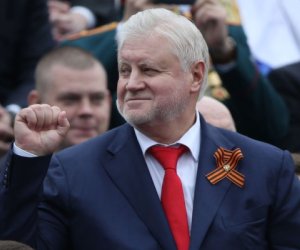
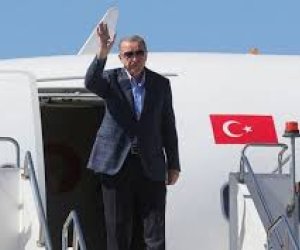
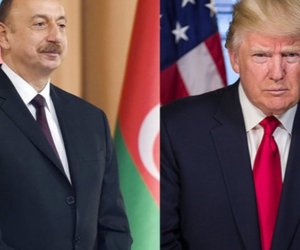
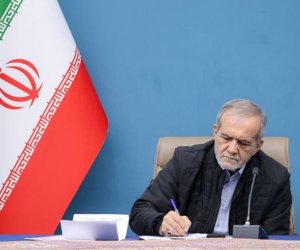
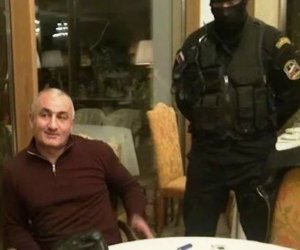
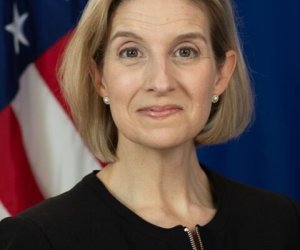
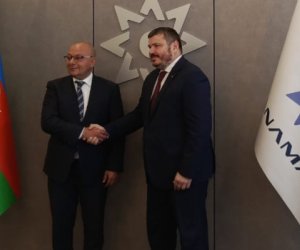
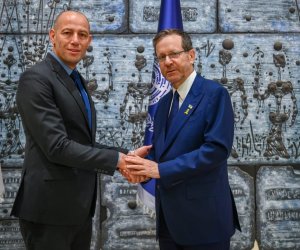



 Photo
Photo 



 Video
Video 

